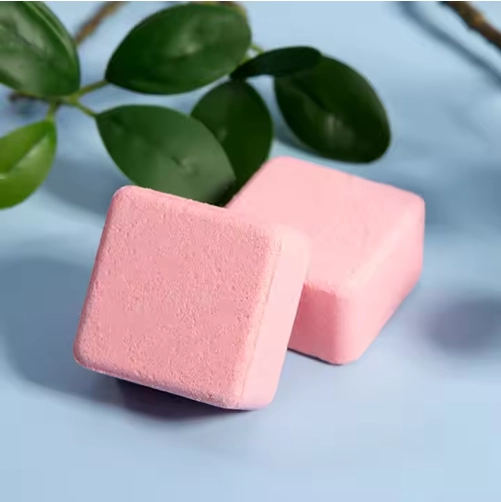What Is Epsom Salt?
Epsom salt is one of many naturally occurring mineral salts, a compound of magnesium and sulfate in rock-like formations. The name “Epsom salt” is a nod to the town of Epsom, located a stone’s throw away from London in England, where the salt was supposedly discovered about 400 years ago.
While it resembles table salt, it has a very bitter taste and isn’t really meant to be consumed. Most users dissolve it in a warm bath to soak in, hoping to relieve stress or sore muscles.

What is Magnesium?
Magnesium is a central building block for life on Earth. Magnesium is a common and essential mineral found in the body, that the body can't produce itself, so we need to ensure that we are receiving enough. It's the organising atom in chlorophyll, converting sunlight to energy in plants. In the human body, magnesium is present in over 300 enzyme systems, regulating blood pressure, synthesising proteins, and monitoring muscle and nerve functions. It's everywhere!
What Is The Difference Between Epsom Salt And Magnesium Chloride Flakes?
Magnesium Flakes look similar to Epsom Salts but they are not exactly the same. A key difference between Epsom Salt and Magnesium Chloride Flakes is the rate of absorption into the body. The molecular structure of Magnesium Chloride is much more easily absorbed into the body than that of Epsom Salt. So while both are wonderful, I find the effects of Magnesium Chloride much more intense. In comparison to Epsom Salts, Magnesium Chloride is not usually recommended to be ingested, unless food-grade.
When it comes to soaking in a warm Magnesium bath, there may be some added confusion surrounding the difference between Epsom Salts and Magnesium Flakes! You may have noticed they look the same, and you may have also noticed that Epsom Salts are often much cheaper. The main difference is that Epsom Salts are Magnesium Sulfate, and Magnesium Flakes are Magnesium Chloride.
Why Is Magnesium Sulfate Called Epsom Salt?
Like many common names for chemical compounds, there’s an interesting story behind why we call magnesium sulfate Epsom salt. As you might have guessed, Epsom salt is named after the place where it was discovered - a rural community in Surrey, near a town called Epsom.
It was first discovered in the 17th century by a farmer who noticed his cattle wouldn’t drink the water from a particular spring. Intrigued, he tried the water for himself, noting that it was very bitter and that when it evaporated, it left behind a white, flaky, salty-looking substance. He also soon found that the water had a purging effect and that his animals that bathed in the water seemed to have wounds heal faster than others.
Soon after, people began to flock to Epsom to benefit from the purgative effects of this bitter water. Some were looking to relieve the painful symptoms of gout (the swelling of joints mainly), while others benefitted from its other purging effects (that being, as a laxative). It was said to have been drunk from stoneware mugs - sometimes as many as 15 pints at a time.
The incredible substance wasn’t officially named until the 1690s when a British anatomist and physiologist named Dr. Nehemiah Grew documented these "bitter purging salts" that he found near Epsom in a book, Nature and Use of the Salt contained in Epsom and such other Waters (1697).
Grew acquired the patent for exclusive manufacturing of Epsom salt, and as more springs were discovered across England, it was soon readily available over the counter. As more and more people began to use it, more of its uses and health benefits were discovered. Later studies found that Epsom salt was, in fact, a compound of magnesium and sulfate, both of which are readily absorbed through the skin, thus being perfect for use in the bath. From there, its popularity and abundance grew exponentially.





